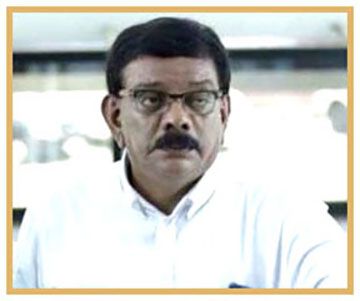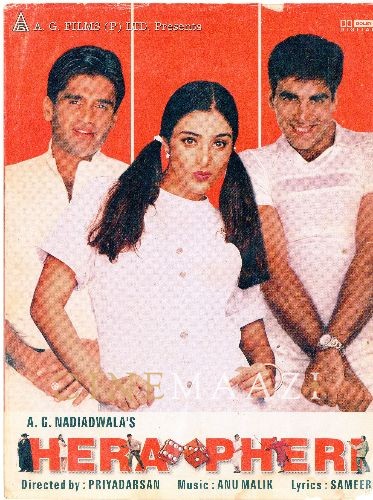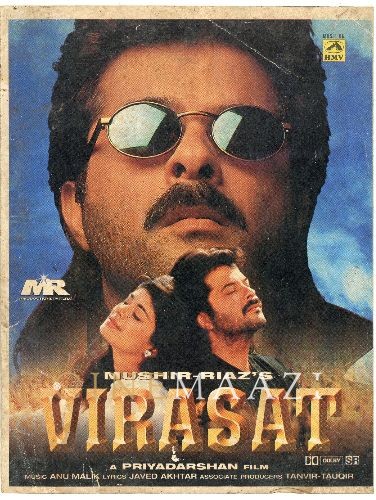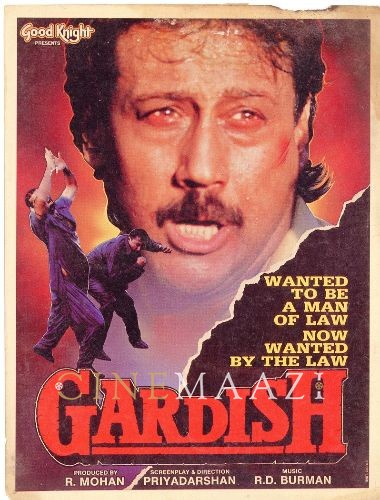Priyadarshan

Subscribe to read full article
This section is for paid subscribers only. Our subscription is only $37/- for one full year.
You get unlimited access to all paid section and features on the website with this subscription.
Not ready for a full subscription?
You can access this article for $2 , and have it saved to your account for one year.
- Real Name: Priyadarshan Soman Nair
- Born: 30 January, 1957 (Thiruvananthapuram, Kerala)
- Primary Cinema: Hindi
- Parents: Poojappura Soman Nair
- Spouse: Lizy (divorced)
- Children: Kalyani, Sidharth
Best known for his comedy films, film director, producer and screenwriter, Priyadarshan has also successfully experimented with action and thriller films. He is considered one of the first directors in India to introduce rich colour grading, clear sound and quality dubbing through his early Malayalam films, as well as attractive cinematography and background music. Known for films such as Oppam (2016), Bhool Bhulaiyaa (2007) and Kanchivaram (2008), in a career spanning approximately three decades, he has directed over 90 films in multiple Indian languages including Malayalam, Hindi, Tamil, and Telugu. Beginning his career in Malayalam cinema in the early 1980s, he was active throughout the 1980s and 1990s. He became mainly active in Hindi cinema between 2001 and 2010. In 2013, he shifted focus to Malayalam cinema. His most notable films include Mazha Peyyunnu Maddalam Kottunnu (1986), Thalavattam (1986), Vellanakalude Naadu (1988), Chithram (1988), Vandanam (1989), Kilukkam (1991), Abhimanyu (1991), Mithunam (1993), Thenmavin Kombath (1994), Kaalapani (1996), and Chandralekha (1997). Known for adapting Malayalam films into Hindi, his notable remakes include Hera Pheri (2000), Hungama (2003), Hulchul (2004), Garam Masala (2005), Bhagam Bhag (2006), Chup Chup Ke (2006), Bhool Bhulaiyaa (2007), and De Dana Dan (2009). A director with many aces up his sleeve, he is also credited with discovering the comic potential in many actors he had worked with and presenting them in a totally new avatar. Besides films, he has decades of experience in advertising, having made more than 150 ad films for leading brands. He has also served as creative director of many events including the international Miss World beauty contest. He has also made videos on the poems written by Shri Atal Bihari Vajpayee – the former Prime Minister of India featuring him as the main cast. He has also conducted interaction workshops for film students at the Toronto Film Festival, Canada, Dubai Film Festival, and the International Film Festival of India – Goa. He is honorary chairman in Janam TV, a prominent Indian cultural news and entertainment television channel of Kerala, as well as the proprietor of Four Frames Sound Company, Chennai which deals with film post-production. With sports being a key area of interest, he also came on board Manorama as a cricket columnist.
Born Priyadarshan Soman Nair on 30 January 1957 in Thiruvananthapuram, Kerala, he received his education at Government Model School and went on to earn an MA degree in Philosophy from University College, Thiruvananthapuram. Growing up, Priyadarshan aspired to be a cricketer. However, his hopes of a career in cricket were cut short by an injury to his left eye by a cricket ball. His father Poojappura Soman Nair, was a reputed dramatist in Malayalam, and worked as a librarian in a college affiliated to the University of Kerala. Influenced by his father, Priyadarshan developed a habit for reading, which he maintained all through his college life. His fascination with fairy tales and comics would later reflect in his films. While in college, he also began writing short plays and skits for All India Radio.
Influenced by the films of director P Venu, he was also inspired to join the film industry by many of his friends who had joined around the same time such as actor Mohanlal, singer M G Sreekumar, and producer Suresh Kumar. Through Mohanlal, whom he followed to Chennai, he bagged a few chances to work as an assistant scriptwriter in a few films and also started writing scripts, with some turning into success. Eventually, he returned to Kerala. He made his debut in Malayalam cinema in 1984 with Poochakkoru Mookkuthi, a comedy starriing Mohanlal, Shankar and Menaka, which revolved around a misunderstanding caused due to two women having the same name that escalates wildly out of control for everyone involved. The film, which he also wrote, became a blockbuster.
He would go on to make his mark with a fresh outlook of comedy, particularly slapstick comedy which he used extensively in his films. Mohanlal played the lead character in many of his successful films. One of their films together is considered to be Chithram (1988), a comedy drama that depicted the tale of a woman who hires a stranger to pose as her husband because she doesn't want her ailing father to know that her fiance broke their engagement.
His Kilukkam would become one of the biggest hits in the history of Malayalam cinema. Starring Mohanlal, Jagathy Sreekumar and Revathi, it told the story of a tourist guide in Ooty who shelters a mentally unstable woman in return for a reward offered by her relatives. Later, he comes to know that she is in danger from her own relatives.
With his Hindi film, Hera Pheri (1998), he created what is considered as one of the funniest films of Indian cinema. It had situational comedy, colourful characters, and fascinating inter-connected subplots. So much so, the film’s success became a blueprint for an entire genre of ‘Priyadarshan kind of’ films, leading to a homogeneity in content and diluting his reputation as a comedy filmmaker, to some extent. Films based on the Hera Pheri template include Hungama (2003), Hulchul (2004), Malamaal Weekly (2006) and Chup Chup Ke (2006).
That said, his knack for comedies sometimes overshadows the fact that he has also pushed the envelope in his own way, sometimes succeeding in creating sensitive films that are not run-of-the-mill. His directorial Thalavattam (1986), adapted from Jack Nicholson’s One Flew Over The Cuckoo’s Nest (1975), followed the story of Vinod (Mohanlal) who loses his sanity after he watches his ladylove die in front of his eyes. Slowly regaining his sanity at a mental health centre, he develops feeling for his doctor, who reciprocates. However, the head of the institution (who also happens to be the father of the lady doctor) is opposed to the idea and lobotomises Vinod.
With Abhimanyu (1991), he adapted the life of Mumbai don Varadrajan Mudaliar, following the footsteps of the acclaimed Nayakan (Tamil) made by Mani Rathnam and Kamal Haasan. The Malayalam version starring Mohanlal depicted the life of a man who migrating to Mumbai and his journey to becoming one of the most feared men in the city.
Kaalapani (1996) was a period film set in the infamous Cellular Jail in Port Blair, Andaman. It portrayed the inhumane conditions under which the inmates served long prison sentences during the British Raj.
His Gardish (1993), starring Jackie Shroff, followed the life of a seemingly quiet, bespectacled, introverted young man, whose only dream is to become a police officer. However, circumstances compel him to take on the local goon. On learning this, his father refuses to endorse his candidacy as a police trainee.
Virasat (1997), based on the Tamil blockbuster Thevar Magan (1992) starring Sivaji Ganesan and Kamal Haasan, was believed to have been inspired by The Godfather (1972), in its depiction of a reluctant son following in the footsteps of his father.
If his Sajaa Ke Rakhna (1998) was a twist on young love with the couple facing opposition from the girl’s brothers, his Kanchivaram (2008) is considered a cinematic gem, featuring Prakash Raj in the tale of a silk weaver and how his life takes a tragic turn. Bumm Bumm Bole (2010), an authorised adaptation of the Iranian classic Children of Heaven by Majid Majidi, follows the lives of two school-going siblings and how their world comes crashing down when only one of the two can afford to wear shoes to school.
Priyadarshan ventured into the realm of Hindi remakes, reworking his Malayalam Kilukkam into Muskurahat (1992). It went unnoticed at the box office. He remade the acclaimed Kamal Haasan starrer Thevar Magan (Tamil, 1992) in Hindi. Titled Virasat, the success of the film established him as a sought-after director in the Hindi film industry along with the cast and crew of the film including Tabu, Ravi K Chandran (cinemotography), and Anu Malik (music). Gardish (1993), which was a remake of his Malayalam film Kireedam, also hit the bull’s eye. A string of remakes followed including Hera Pheri (2000), the remake of Ramji Rao Speaking (1989); Hungama (2003), the remake of Poochakkoru Mookkuthi (1984); Hulchul (2004), the remake of Godfather (1991); Garam Masala (2005), the remake of Boeing Boeing (1985), Chup Chup Ke (2006), the remake of Punjabi House (1998), Bhool Bhulaiyaa (2007), the remake of Manichitrathazhu (1993) and Billu (2009), the remake of Kadha Parayumbol (2007).
In the course of his career, Priyadarshan has faced allegations of plagiarism, for evidently lifting both Indian as well as Hollywood films. Instances include his Thalavattam (1986) which was heavily based on the Oscar-winning film One Flew Over the Cuckoo's Nest; Vandanam (1989) which was evidently a copy of (Stakeout, 1987); Kakkakuyil (2001) which bore similarity to A Fish Called Wanda (1988); Malamaal Weekly (2006) which was apparently copied from Waking Ned (1998); and Garam Masala (2005) which was inspired by Boeing Boeing (1965). Addressing the accusations, Priyadarshan once told The Hindu, “Today, 99% of the films are copied.”
His Malayalam crime thriller Oppam (2016), with Mohanlal in the lead, became the third highest grossing Malayalam film.
More recently, his Tamil art film Sila Samayangalil (2018), his entertaining yet moving take on AIDS, went up to the final round of selection for the 74th Annual Golden Globe Awards. It won multiple accolades at the Jaipur International Film Festival, and also awards for Best Film with a Global Message and overall Best Film from the Asian Continent.
His action/ costume drama Marakkar - Lion of the Arabian Sea (2021) reportedly became the first ever 100-crore film in the Malayalam film industry. The historical action film featured Mohanlal in the story of the legendary Kunjali Marakkar IV and his epic warfare against the Portuguese.
The book Ormakilukkam, published by DC books, shares some interesting incidents from Priyadarshan’s real as well as reel life.
Priyadarshan met his wife, Malayalam actress Lizy, on the sets of his second film. They worked together in 12 films. He has two children, daughter Kalyani and son Sidharth. The couple divorced in 2016.
References
https://www.directorpriyadarshan.com/
https://www.imdb.com/name/nm0698184/bio?ref_=nm_ov_bio_sm
https://www.scoopwhoop.com/entertainment/priyadarshan-more-than-just-a-comedy-director/
https://www.indiatoday.in/movies/regional-cinema/story/kalyani-on-her-parents-priyadarshan-and-lissy-s-divorce-it-was-a-shock-but-now-we-are-at-peace-1629306-2019-12-18
Image courtesy: https://www.bollywoodhungama.com/news/south-cinema/birthday-special-mohanlal-rescued-priyadarshan-depression/
-
Filmography (4)
SortRole
-

Hera Pheri 2000
-

Virasat 1997
-

Gardish 1993
-
Muskurahat 1992
-







.jpg)



